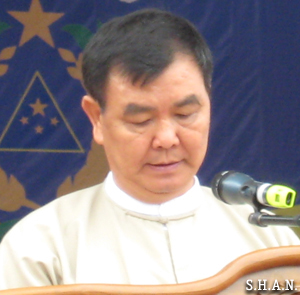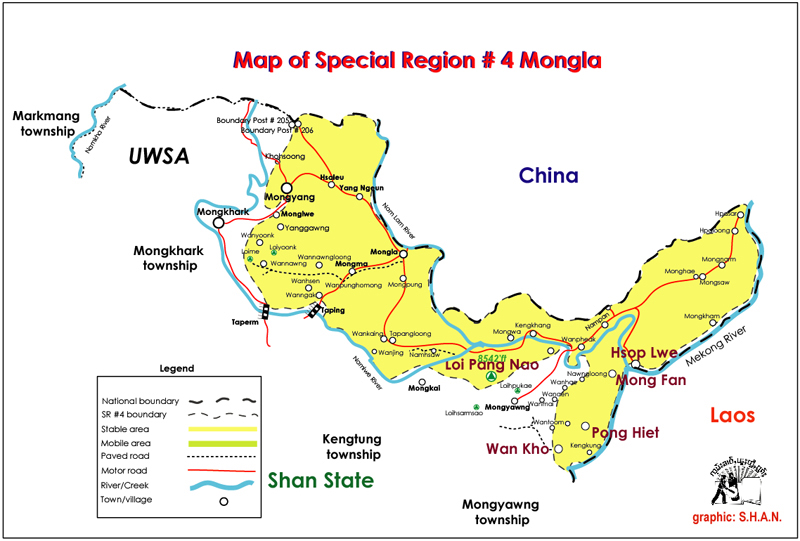Tipped and joined by Chinese drug busters, officials from the National Democratic Alliance Army (NDAA), better known as the Mongla group, had netted 12 tons of precursor chemicals used for manufacturing narcotic drugs on 30 November, according to local sources.

ASTV Manager Online, the Thai media group that has for years been reporting on events in the Golden Triangle, reported on 8 December a huge amount of drugs were discovered on the cargo ship Keo Pasert (a name of Lao origin) at Hsop Lwe, the NDAA port on the Mekong. The captain was said to be a Shan named Hsengzai.
The source, close to the Mongla leadership, confirmed they were not drugs but precursors. No further details were given.
According a Shan trader, 5 crewmen all from Tachilek’s Paliao-Kenglarb area, and the seized precursor chemicals were taken to China.
Asked why Mongla sources, while prompt in sharing other information, were slow about data on drugs, the source close to Mongla said, “The information (leading to the Hsop Lwe seizure) was supplied by the Chinese. We don’t think it’s fair to take credit for helping them.”
Another source however commented that the Mongla leadership might have been reluctant to offend its allies: Wa and Kokang whose territories adjoin Mongla.
In October, when SHAN told Sao Hseng La, General Secretary, that the 920,000 speed pills seized in Chiang Saen were reported by the Thai press as coming from Mongla, he replied “I cannot speak for other groups. But I can assure you that the NDAA has nothing to do with the affair.”
Mongla and its top leader Sai Leun aka Sai Lin aka Lin Mingxian, 65, had been on the United States’ blacklist until 1997 when it was dropped from the list. The group says its revenues come mainly from mining and casinos businesses.

Mongla, located at the upper triangle where Burma’s Shan State meets China and Laos, and with an outlet to the Mekong that connects the territory to other downstream countries Thailand, Cambodia and Vietnam and, through them, to the outside world, is of strategic importance to all the stakeholders concerned.


